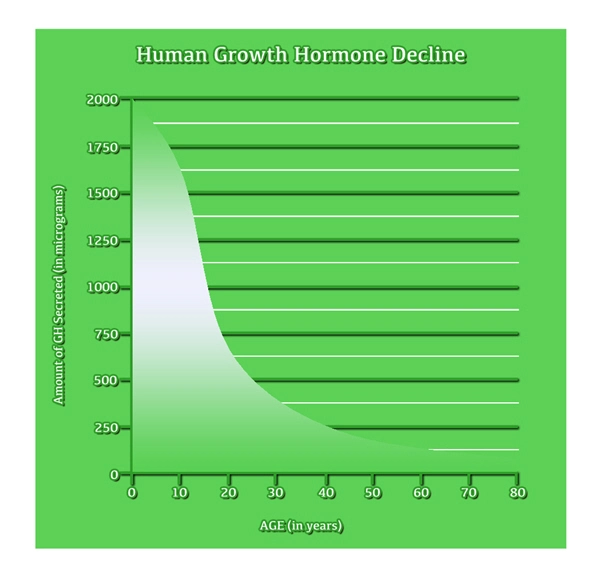Pig organs transplanted into humans? Really? Yes, REALLY! Recently, surgeons at NYU Langone Health have successfully transplanted a genetically engineered pig’s kidney into a brain- dead man. The kidney is still functioning optimally 32 days more than a month after the procedure.
dead man. The kidney is still functioning optimally 32 days more than a month after the procedure.
This represents the most extended period that a gene-edited pig kidney has functioned in a human and is a gigantic step toward transplanting a pig kidney into a living person.
The problem
In the United States, there are more than 103,000 people on the waiting list for a transplant, with nearly 88,000 of those waiting for a kidney, according to recent federal Organ Procurement and Transplantation Network (OPTN) data. In 2022, around 26,000 people received a kidney transplant. Meanwhile, almost 808,000 people in the United States have end-stage kidney disease – a staggering imbalance.
“There are simply not enough organs available for everyone who needs one,” said Dr. Montgomery, director of NYU Langone’s transplant institute, who received a hepatitis C-positive heart transplant in 2018. “Too many people are dying because of the lack of available organs, and I strongly believe xenotransplantation is a viable way to change that.”
To close the Grand-Canyon-like gap between the need for organs and their availability, researchers are racing to learn how to use animal organs to save human lives, and bodies donated for research offer a fabulous rehearsal.
for research offer a fabulous rehearsal.
Pig organs are a logical choice for transplants since they resemble human organs in size and shape. However, there is a horrendous problem. Pig organs trigger a severely devastating human immune system rejection response...enough to prove fatal.
This was the case in a pig heart transplant in 2022. In that operation, the University of Maryland surgeons transplanted a gene-edited pig heart into a dying man whose condition was considered hopeless. He survived a paltry two months before the organ failed for reasons that aren't fully understood. But the operation was not a total loss; it offered lessons for future attempts.
Attempts at animal-to-human transplants, or xenotransplantation, have previously failed as people's immune systems attacked the foreign tissue. Now researchers are using genetically modified pigs so their organs better match human bodies.
The first obstacle to overcome in xenotransplants is preventing hyperacute rejection, which typically occurs immediately after an animal organ is attached to the human circulatory system. By “knocking out” the gene that encodes the biomolecule known as alpha-gal—which is responsible for causing a rapid antibody-mediated rejection of pig organs by humans—immediate rejection has been avoided in all five xenotransplants at NYU Langone.
Also, the pig’s thymus gland, which is responsible for educating the immune system, was embedded under the outer layer of the kidney to ward off delayed immune responses. This remarkable tag-team of alterations has prevented organ rejection while preserving kidney function.
To ensure the body’s kidney function was sustained entirely by the pig kidney, both of the  transplant recipient’s native kidneys were surgically removed. One pig kidney was then transplanted and began producing urine immediately with no signs of rejection.
transplant recipient’s native kidneys were surgically removed. One pig kidney was then transplanted and began producing urine immediately with no signs of rejection.
During the observation phase, intensive care clinical staff kept the decedent on life support while the pig kidney’s performance was monitored and sampled with weekly biopsies. Levels of creatinine, a bodily waste product found in the blood and an indicator of kidney function, were in the optimal range during the study, and there was no biopsy of rejection.
To increase the possibility of success, the surgeons connected the pig’s thymus gland to the transplanted kidney, hoping that the gland would increase human tolerance.
The kidney and thymus gland used in this procedure were procured from a GalSafe pig, an animal engineered by Revivicor Inc., a subsidiary of United Therapeutics Corporation.
Despite the operation’s initial success, the research is far from over. Researchers are tracking the kidney's performance for a second month.
"Is this organ really going to work like a human organ? So far, it's looking like it is," said Dr. Montgomery.”
But how do pig organs react to a more typical human immune attack that takes about a month to form? Only time will tell.
"It looks even better than a human kidney," Montgomery said on July 14 as he replaced a deceased man's own kidneys with a single kidney from a genetically modified pig—and watched it immediately start producing urine.
Next, rather than last-ditch efforts, the Food and Drug Administration is considering allowing small but rigorous studies of pig heart or kidney transplants in volunteer patients.
The NYU experiment is one of many developments aimed at speeding the start of such clinical trials. Also, the University of Alabama at Birmingham reported another critical success—a pair of pig kidneys functioned normally inside another donated body for seven days.
These experiments are critical to answer remaining questions "in a setting where we're not putting someone's life in jeopardy," said Montgomery, who is acutely aware of the need for a new source of organs.
Maryland's Dr. Muhammad Mohiuddin reminds us that it's unclear how closely a corpse will mimic a live patient's reactions to a pig organ. But he said the research educates the public about xenotransplantation so "people will not be shocked" when it's time to try again in the living.
Previously, NYU and a team at the University of Alabama at Birmingham had tested pig kidney transplants in deceased recipients for only two or three days. An NYU team also had transplanted pig hearts into donated bodies for three days of intense testing.
The surgery itself isn't that different from thousands he's performed, "but somewhere in the back of your mind is the enormity of what you're doing... recognizing that this could have a huge impact on the future of transplantation," Montgomery said.
The team also relies on standard immune-suppressing drugs today's transplant patients use. "You're always nervous," one surgeon said. To see it so rapidly kickstart, "there was a lot of thrill and lot of sense of relief."
“This work demonstrates a pig kidney – with only one genetic modification and without experimental medications or devices – can replace the function of a human kidney for at least 32 days without being rejected,” said Dr. Montgomery, who had previously performed the world’s first genetically modified kidney transplant into a human decedent on September 25th, 2021, followed by a second similar operation on November 22, 2021.
Surgeons with the Transplant Institute performed two genetically engineered pig heart transplants in the summer of 2022.
A Move Closer Toward a New Organ Source
While previous genetically engineered pig organ transplants have incorporated up to 10 genetic modifications, this latest study shows that a single-gene knockout pig kidney can still perform optimally for at least 32 days without rejection.
“We’ve now gathered more evidence to show that, at least in kidneys, just eliminating the gene that triggers a hyperacute rejection may be enough along with clinically approved immunosuppressive drugs to successfully manage the transplant in a human for optimal performance—potentially in the long-term,” said Dr. Montgomery.
The NYU Langone team used standard transplant immunosuppression medications combined with enhanced porcine cytomegalovirus (pCMV) screening in the donor pig to ensure safety.
Recent studies have shown that pCMV may affect organ performance and potentially trigger organ  failure. No pCMV was detected after 32 days, and close surveillance of porcine endogenous retrovirus (PERV) and six other viruses of interest was performed.
failure. No pCMV was detected after 32 days, and close surveillance of porcine endogenous retrovirus (PERV) and six other viruses of interest was performed.
Monitoring of the pig kidney recipient will continue for another month with permission from the family, ethics committee approval, and continued support from United Therapeutics. The additional data from the next several weeks will be scrutinized further to understand this unique medical advance better.
“We think using a pig already deemed safe by the FDA, in combination with what we have found in our xenotransplantation research so far, gets us closer to the clinical trial phase,” said Dr. Montgomery. “We know this has the potential to save thousands of lives, but we want to ensure the utmost safety and care as we move forward.”
References
https://medicalxpress.com/news/2023-08-pig-kidney-donated-body-month.html

- Human Growth Hormone Injections In Cheyenne [Last Updated On: February 3rd, 2025] [Originally Added On: October 19th, 2018]
- Human Growth Hormone Injections In Madison [Last Updated On: February 9th, 2025] [Originally Added On: October 19th, 2018]
- Human Growth Hormone Injections In Vancouver [Last Updated On: February 24th, 2025] [Originally Added On: October 19th, 2018]
- Human Growth Hormone Injections In Tacoma [Last Updated On: February 25th, 2025] [Originally Added On: October 19th, 2018]
- Human Growth Hormone Injections In Spokane [Last Updated On: February 26th, 2025] [Originally Added On: October 19th, 2018]
- Human Growth Hormone Injections In Bellevue [Last Updated On: February 26th, 2025] [Originally Added On: October 19th, 2018]
- Human Growth Hormone Injections In Richmond [Last Updated On: February 9th, 2025] [Originally Added On: October 19th, 2018]
- Human Growth Hormone Injections In Portsmouth [Last Updated On: February 10th, 2025] [Originally Added On: October 19th, 2018]
- Human Growth Hormone Injections In Norfolk [Last Updated On: February 10th, 2025] [Originally Added On: October 19th, 2018]
- Human Growth Hormone Injections In Hampton [Last Updated On: March 27th, 2025] [Originally Added On: October 19th, 2018]
- Human Growth Hormone Injections In Chesapeake [Last Updated On: March 27th, 2025] [Originally Added On: October 19th, 2018]
- Human Growth Hormone Injections In Alexandria [Last Updated On: March 28th, 2025] [Originally Added On: October 19th, 2018]
- Human Growth Hormone Injections In Montpelier [Last Updated On: February 11th, 2025] [Originally Added On: October 19th, 2018]
- Human Growth Hormone Injections In Provo [Last Updated On: February 11th, 2025] [Originally Added On: October 19th, 2018]
- Human Growth Hormone Injections In Waco [Last Updated On: February 16th, 2025] [Originally Added On: October 19th, 2018]
- Human Growth Hormone Injections In Richardson [Last Updated On: February 14th, 2025] [Originally Added On: October 19th, 2018]
- Human Growth Hormone Injections In Plano [Last Updated On: February 15th, 2025] [Originally Added On: October 19th, 2018]
- Human Growth Hormone Injections In Pasadena [Last Updated On: February 13th, 2025] [Originally Added On: October 19th, 2018]
- Human Growth Hormone Injections In Midland [Last Updated On: February 16th, 2025] [Originally Added On: October 19th, 2018]
- Human Growth Hormone Injections In Mesquite [Last Updated On: February 13th, 2025] [Originally Added On: October 19th, 2018]
- Human Growth Hormone Injections In McKinney [Last Updated On: February 12th, 2025] [Originally Added On: October 19th, 2018]
- Human Growth Hormone Injections In McAllen [Last Updated On: February 17th, 2025] [Originally Added On: October 19th, 2018]
- Human Growth Hormone Injections In Lubbock [Last Updated On: February 15th, 2025] [Originally Added On: October 19th, 2018]
- Human Growth Hormone Injections In Lewisville [Last Updated On: February 14th, 2025] [Originally Added On: October 20th, 2018]
- Human Growth Hormone Injections In Laredo [Last Updated On: February 12th, 2025] [Originally Added On: October 20th, 2018]
- Human Growth Hormone Injections In Killeen [Last Updated On: February 18th, 2025] [Originally Added On: October 20th, 2018]
- Human Growth Hormone Injections In Irving [Last Updated On: February 19th, 2025] [Originally Added On: October 20th, 2018]
- Human Growth Hormone Injections In Garland [Last Updated On: February 20th, 2025] [Originally Added On: October 20th, 2018]
- Human Growth Hormone Injections In Denton [Last Updated On: February 21st, 2025] [Originally Added On: October 20th, 2018]
- Human Growth Hormone Injections In Carrollton [Last Updated On: February 17th, 2025] [Originally Added On: October 20th, 2018]
- Human Growth Hormone Injections In Brownsville [Last Updated On: February 21st, 2025] [Originally Added On: October 20th, 2018]
- Human Growth Hormone Injections In Beaumont [Last Updated On: February 18th, 2025] [Originally Added On: October 20th, 2018]
- Human Growth Hormone Injections In Austin [Last Updated On: February 22nd, 2025] [Originally Added On: October 20th, 2018]
- Human Growth Hormone Injections In Arlington [Last Updated On: February 20th, 2025] [Originally Added On: October 20th, 2018]
- Human Growth Hormone Injections In Amarillo [Last Updated On: February 19th, 2025] [Originally Added On: October 20th, 2018]
- Human Growth Hormone Injections In Abilene [Last Updated On: February 22nd, 2025] [Originally Added On: October 20th, 2018]
- Human Growth Hormone Injections In Nashville [Last Updated On: February 27th, 2025] [Originally Added On: October 20th, 2018]
- Human Growth Hormone Injections In Murfreesboro [Last Updated On: February 27th, 2025] [Originally Added On: October 20th, 2018]
- Human Growth Hormone Injections In Memphis [Last Updated On: February 28th, 2025] [Originally Added On: October 20th, 2018]
- Human Growth Hormone Injections In Knoxville [Last Updated On: February 28th, 2025] [Originally Added On: October 20th, 2018]
- Human Growth Hormone Injections In Clarksville [Last Updated On: March 1st, 2025] [Originally Added On: October 20th, 2018]
- Human Growth Hormone Injections In Chattanooga [Last Updated On: March 1st, 2025] [Originally Added On: October 20th, 2018]
- Human Growth Hormone Injections In Erie [Last Updated On: March 29th, 2025] [Originally Added On: October 20th, 2018]
- Human Growth Hormone Injections In Allentown [Last Updated On: March 28th, 2025] [Originally Added On: October 20th, 2018]
- Human Growth Hormone Injections In Salem [Last Updated On: March 2nd, 2025] [Originally Added On: October 20th, 2018]
- Human Growth Hormone Injections In Portland [Last Updated On: March 2nd, 2025] [Originally Added On: October 20th, 2018]
- Human Growth Hormone Injections In Gresham [Last Updated On: March 3rd, 2025] [Originally Added On: October 20th, 2018]
- Human Growth Hormone Injections In Eugene [Last Updated On: March 3rd, 2025] [Originally Added On: October 20th, 2018]
- Human Growth Hormone Injections In Tulsa [Last Updated On: March 4th, 2025] [Originally Added On: October 20th, 2018]
- Human Growth Hormone Injections In Norman [Last Updated On: March 4th, 2025] [Originally Added On: October 20th, 2018]
- Human Growth Hormone Injections In Toledo [Last Updated On: February 5th, 2025] [Originally Added On: October 20th, 2018]
- Human Growth Hormone Injections In Dayton [Last Updated On: February 7th, 2025] [Originally Added On: October 20th, 2018]
- Human Growth Hormone Injections In Columbus [Last Updated On: February 7th, 2025] [Originally Added On: October 20th, 2018]
- Human Growth Hormone Injections In Akron [Last Updated On: February 8th, 2025] [Originally Added On: October 20th, 2018]
- Human Growth Hormone Injections In Paterson [Last Updated On: February 23rd, 2025] [Originally Added On: October 20th, 2018]
- Human Growth Hormone Injections In Reno [Last Updated On: February 24th, 2025] [Originally Added On: October 20th, 2018]
- Human Growth Hormone Injections In Henderson [Last Updated On: February 25th, 2025] [Originally Added On: October 20th, 2018]
- Human Growth Hormone Injections In Omaha [Last Updated On: February 4th, 2025] [Originally Added On: October 20th, 2018]
- Human Growth Hormone Injections In Lincoln [Last Updated On: February 4th, 2025] [Originally Added On: October 20th, 2018]
- Human Growth Hormone Injections In Billings [Last Updated On: February 5th, 2025] [Originally Added On: October 20th, 2018]
- Human Growth Hormone Injections In Springfield [Last Updated On: February 6th, 2025] [Originally Added On: October 20th, 2018]
- Human Growth Hormone Injections In Independence [Last Updated On: April 6th, 2025] [Originally Added On: October 20th, 2018]
- Human Growth Hormone Injections In Columbia [Last Updated On: February 6th, 2025] [Originally Added On: October 20th, 2018]
- Human Growth Hormone Injections In Jackson [Last Updated On: February 8th, 2025] [Originally Added On: October 20th, 2018]
- Human Growth Hormone Injections In Rochester [Last Updated On: February 23rd, 2025] [Originally Added On: October 20th, 2018]
- Human Growth Hormone Injections In Warren [Last Updated On: March 5th, 2025] [Originally Added On: October 20th, 2018]
- Human Growth Hormone Injections In Lansing [Last Updated On: March 5th, 2025] [Originally Added On: October 20th, 2018]
- Human Growth Hormone Injections In Flint [Last Updated On: March 6th, 2025] [Originally Added On: October 20th, 2018]
- Human Growth Hormone Injections In Worcester [Last Updated On: March 29th, 2025] [Originally Added On: October 20th, 2018]
- Human Growth Hormone Injections In Springfield [Last Updated On: March 30th, 2025] [Originally Added On: October 20th, 2018]
- Human Growth Hormone Injections In Lowell [Last Updated On: March 30th, 2025] [Originally Added On: October 20th, 2018]
- Human Growth Hormone Injections In Cambridge [Last Updated On: March 31st, 2025] [Originally Added On: October 20th, 2018]
- Human Growth Hormone Injections In Augusta [Last Updated On: March 6th, 2025] [Originally Added On: October 20th, 2018]
- Human Growth Hormone Injections In Shreveport [Last Updated On: March 7th, 2025] [Originally Added On: October 20th, 2018]
- Human Growth Hormone Injections In Lafayette [Last Updated On: March 7th, 2025] [Originally Added On: October 20th, 2018]
- Human Growth Hormone Injections In Louisville [Last Updated On: March 8th, 2025] [Originally Added On: October 20th, 2018]
- Human Growth Hormone Injections In Lexington [Last Updated On: March 8th, 2025] [Originally Added On: October 20th, 2018]
- Human Growth Hormone Injections In Wichita [Last Updated On: March 9th, 2025] [Originally Added On: October 20th, 2018]
- Human Growth Hormone Injections In Topeka [Last Updated On: March 9th, 2025] [Originally Added On: October 20th, 2018]
- Human Growth Hormone Injections In Olathe [Last Updated On: March 10th, 2025] [Originally Added On: October 20th, 2018]



List of USA state clinics - click a flag below for blood testing clinics.
Word Count: 1331



















































